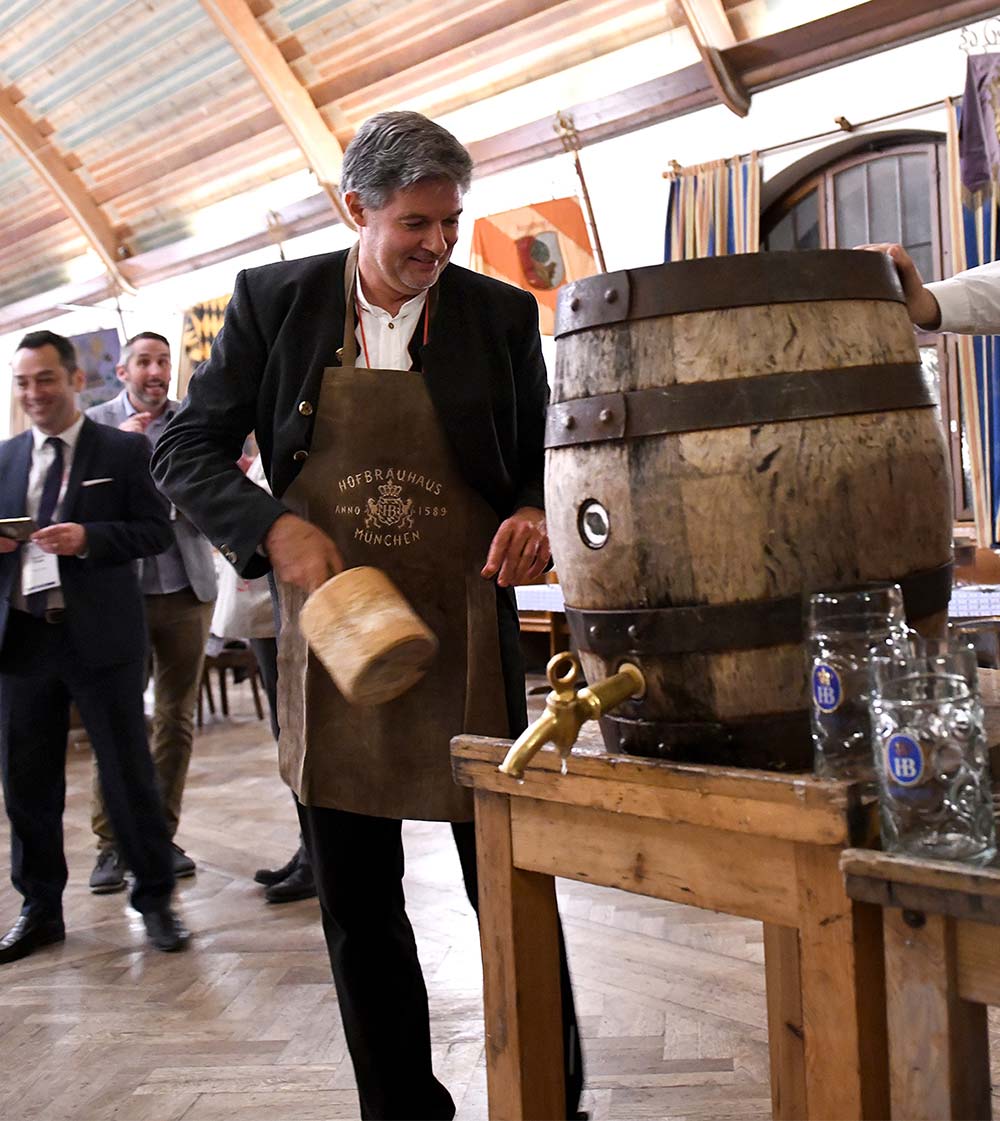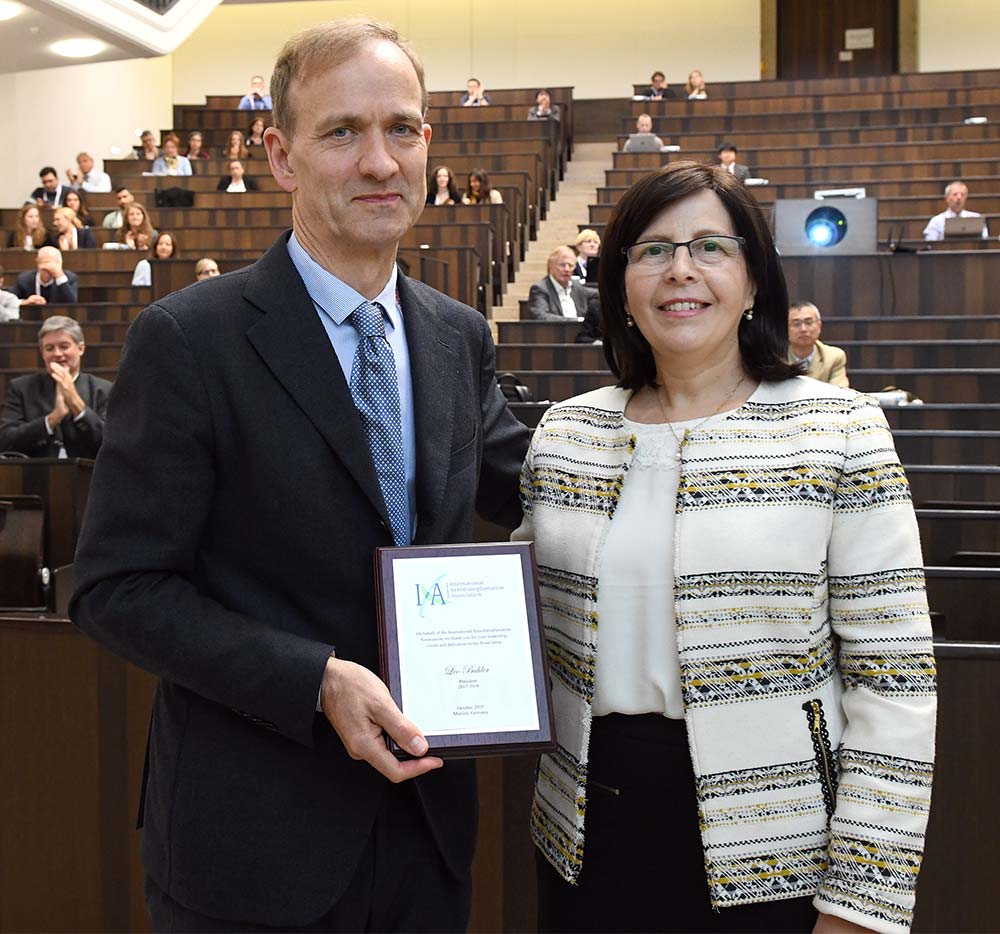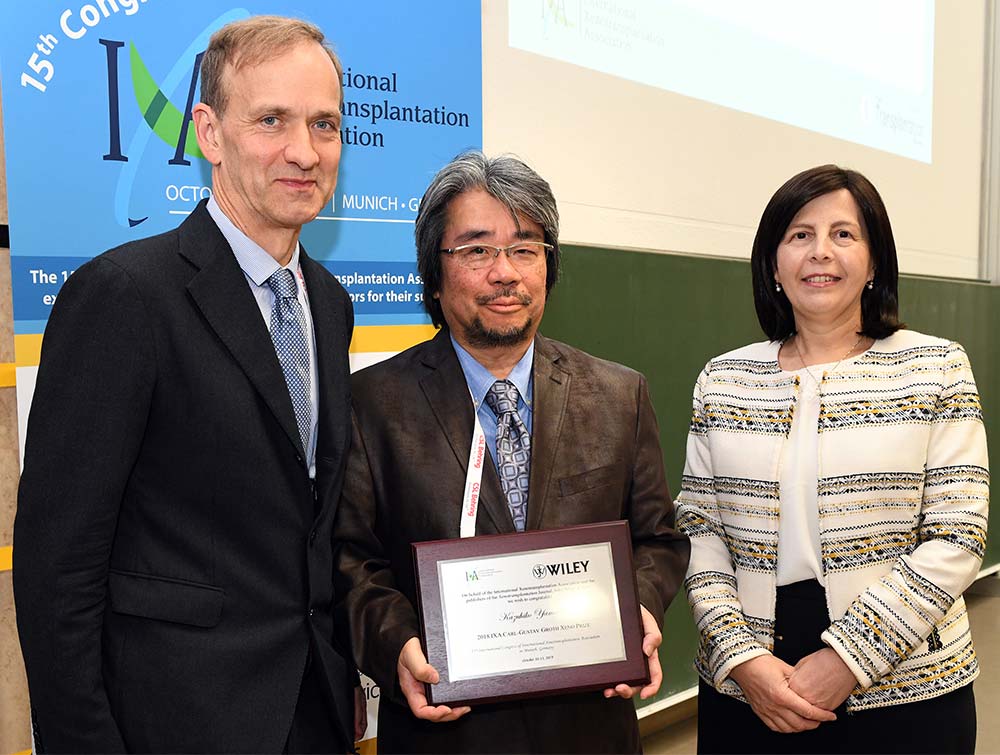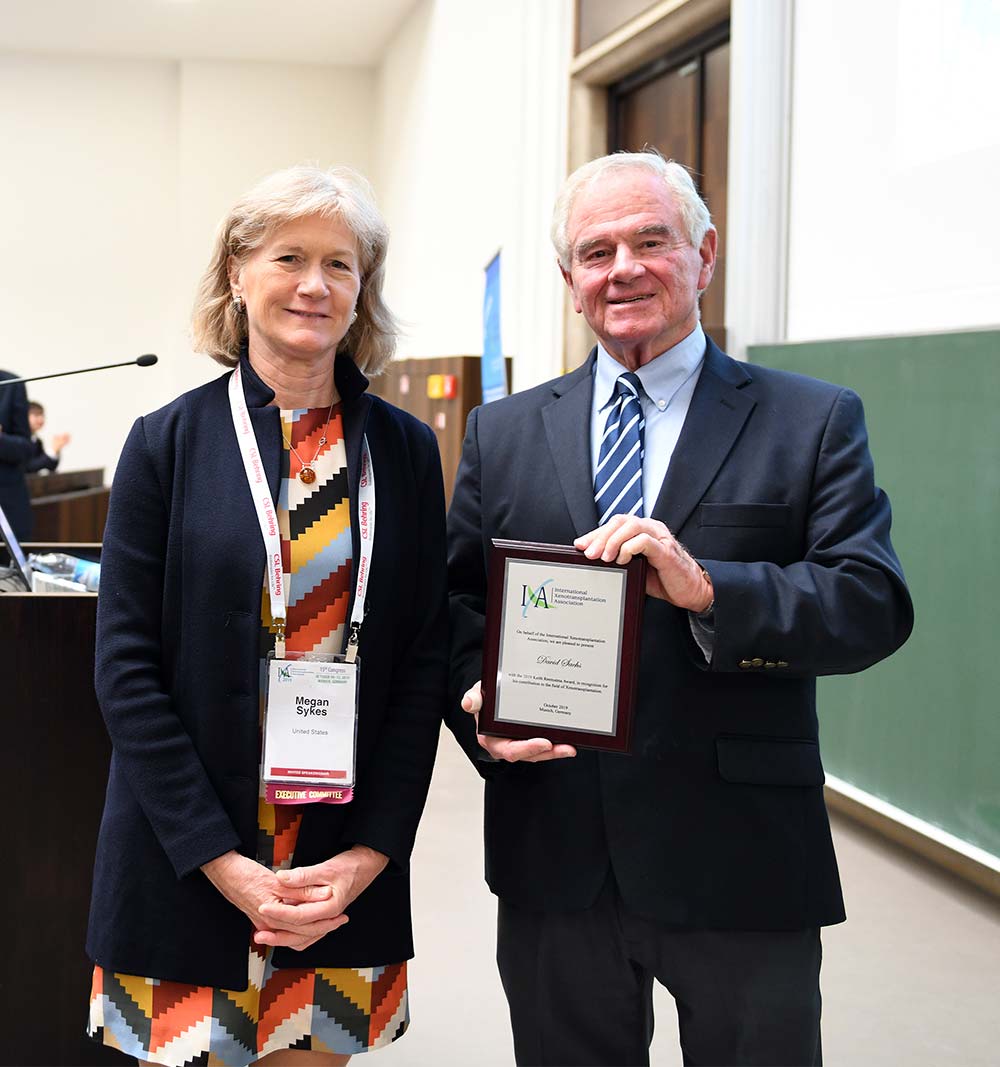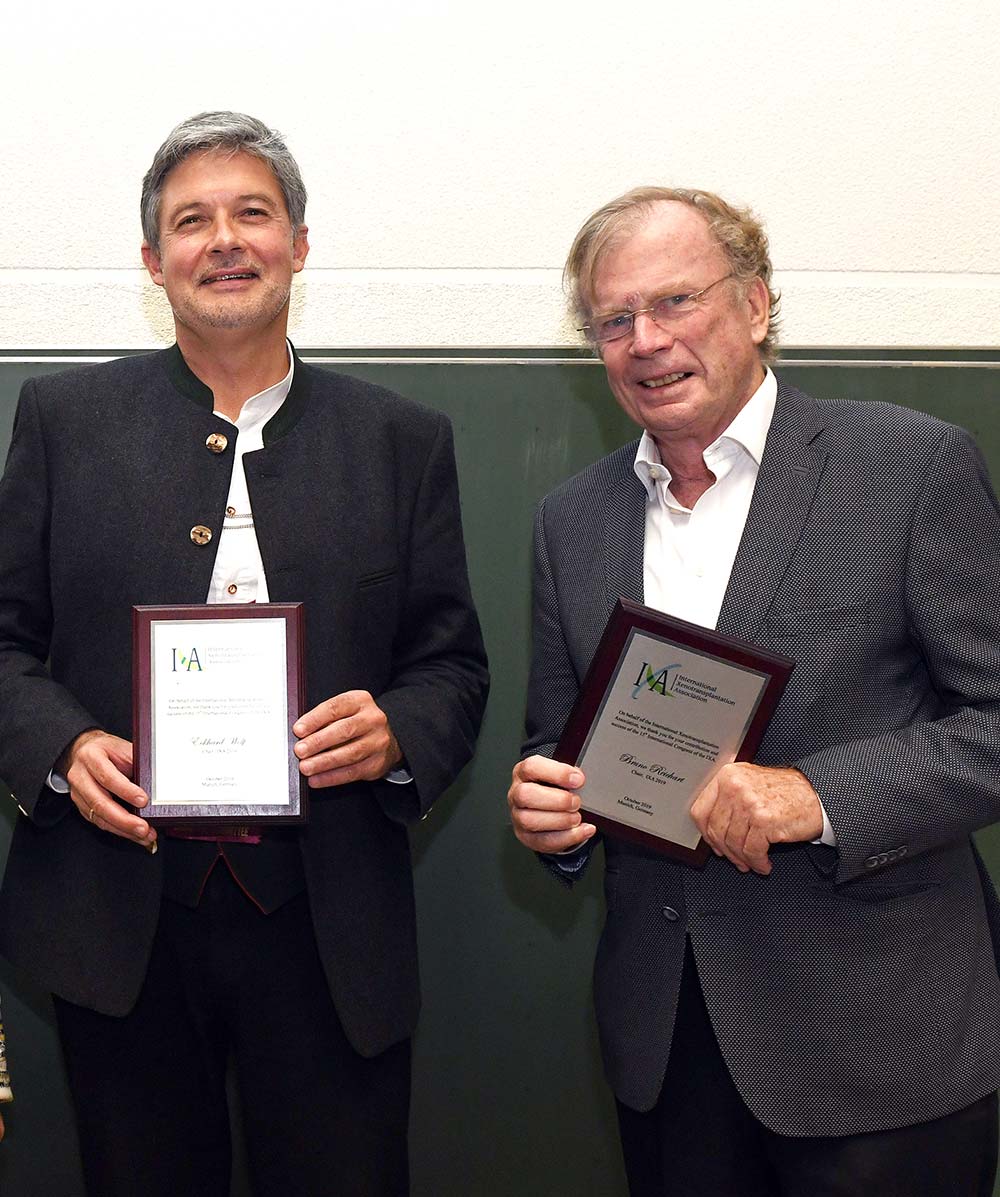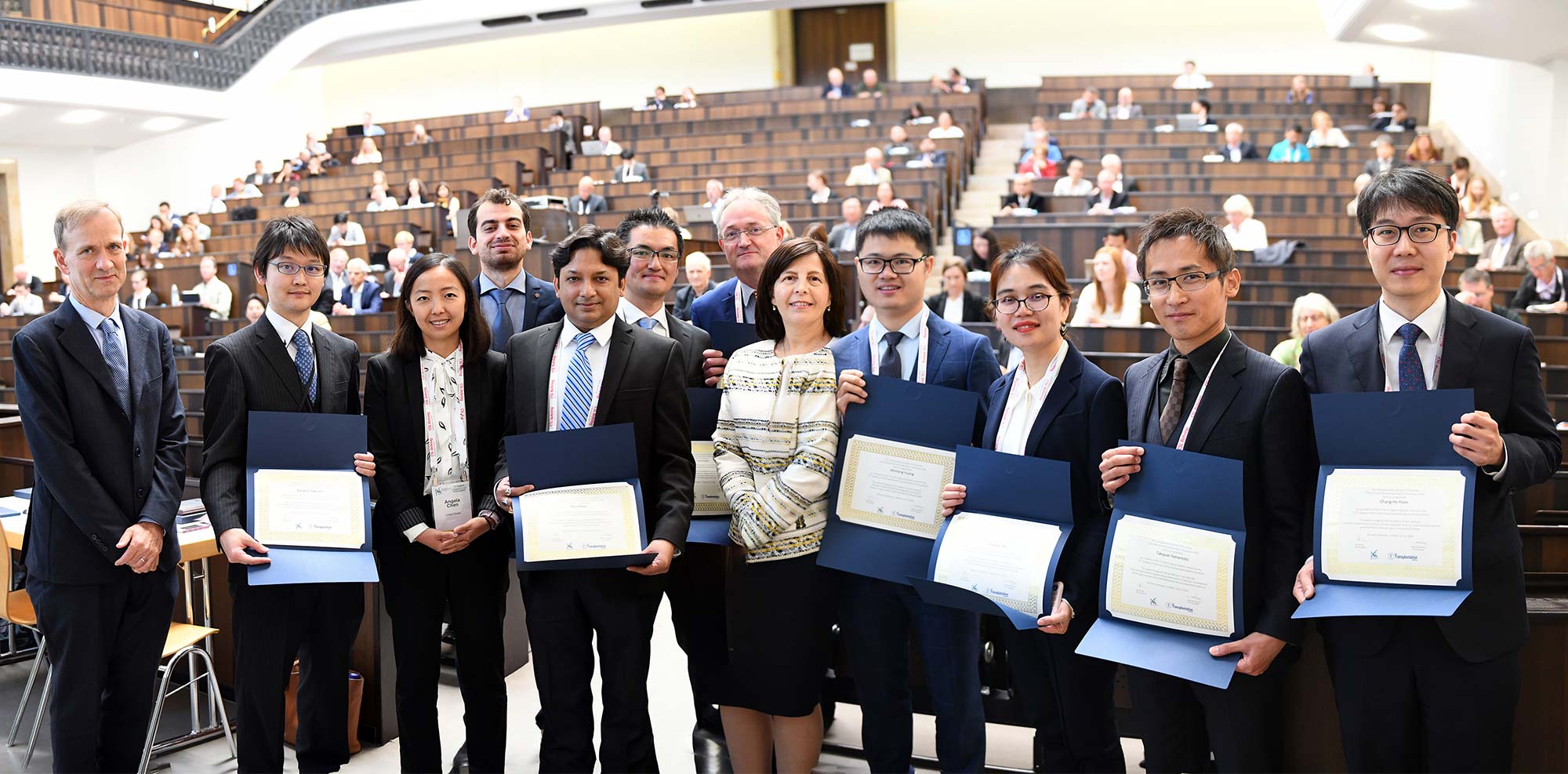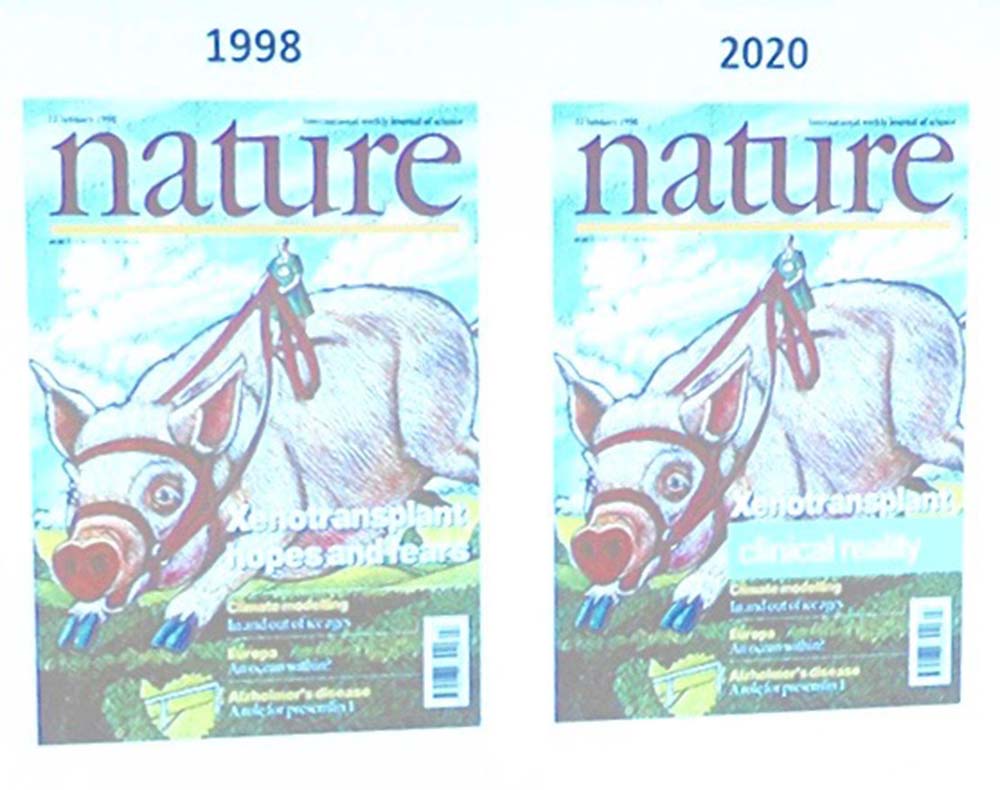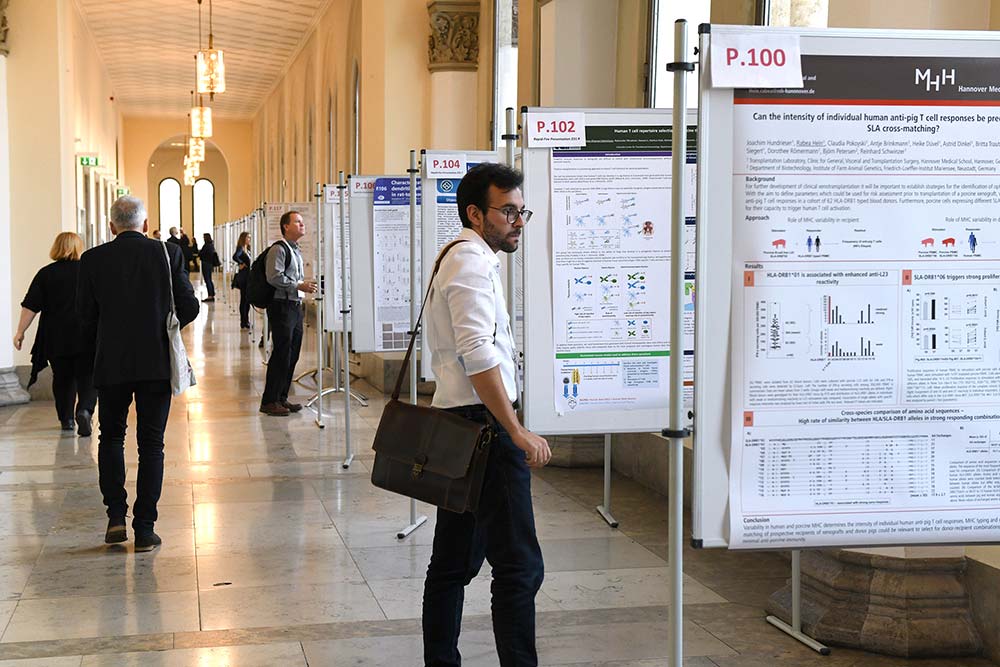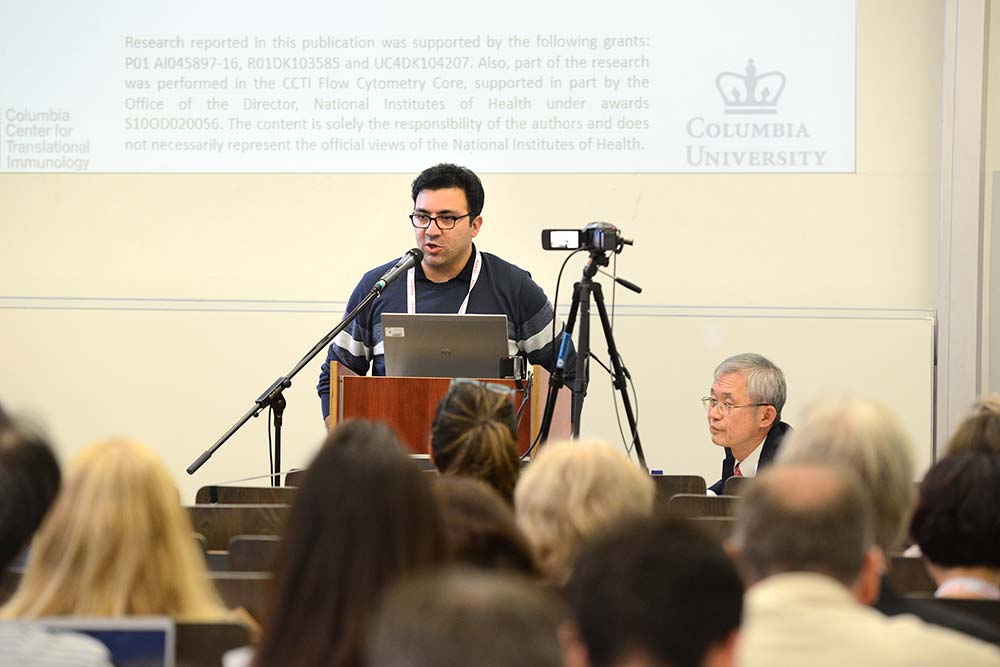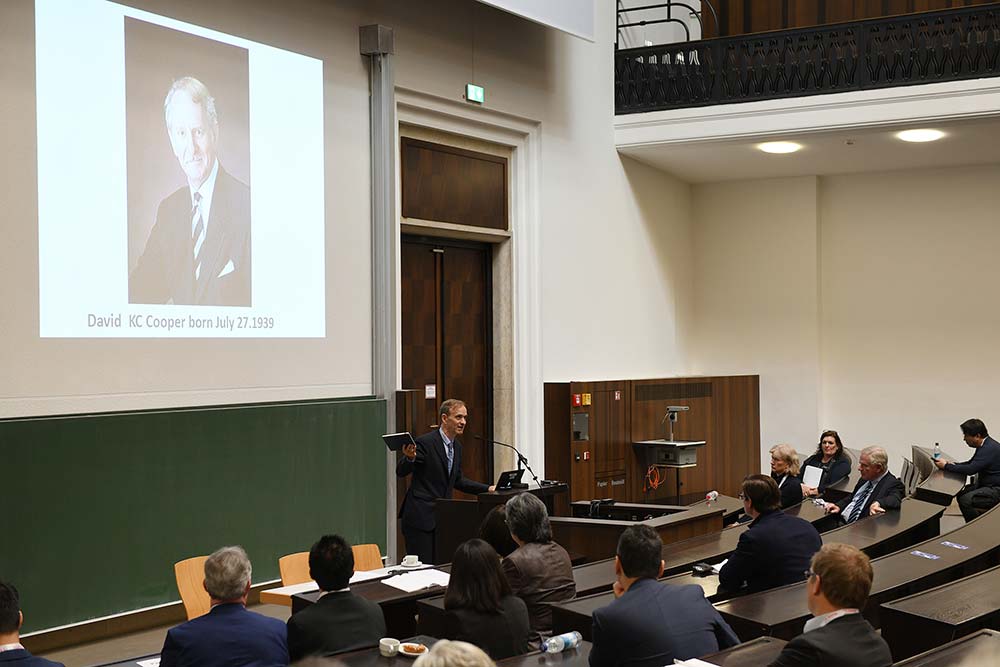IXA Leadership
President's Message
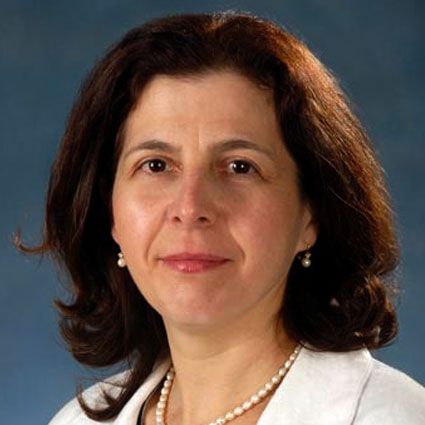
Agnes Azimzadeh
Massachussets General Hospital and Harvard Medical School,
Boston, MA, United States
Dear Colleagues
It is with great pleasure and honor that I succeed Dr. Leo Buhler in his post of IXA President. Over the past two years, Dr. Buhler has uniquely contributed to the development of the International Xenotransplantation Association (IXA) and its Journal. On behalf of the Association, I wish to thank Dr. Buhler for his strong leadership. I look forward to continue the advancement of our society over the next two years.
Last October, the Ludwig Maximilian University in Munich hosted the 15th International Xenotransplantation Association Congress. The Congress was an outstanding success, both scientifically and socially. Thank you to Congress Chairs Eckhard Wolf and Bruno Reichart for developing a rich and forward-looking scientific program in a relaxing and historical atmosphere. The numerous scientific highlights of the meeting were summarized by Peter Cowan in the closing session and in the IXA Newsletter. This year’s meeting illustrated that the pace of progress in our field has accelerated over the last few years and that the timeline for clinical application is shortening.
After the Munich meeting the IXA Council met to discuss the state and direction of the association. The discussion was largely inspired and driven by the results of the recent member survey. I am very happy to report that the IXA Council has taken resolutions to create several new initiatives:
- The Young Investigator Committee (formerly called Vanguard Committee) will provide new mentorship opportunities for trainees.
- In an effort to further improve IXA communications, webinars and podcasts on Xenotransplantation will be developed and the website will be updated.
- Options were discussed to improve the visibility of the journal.
- A Young Investigators Endowment Research Fund (YIER) will be created to support the education, research and mentorship of the next generation of professionals in Xenotransplantation. The funds raised will support a variety of initiatives, such as travel awards and laboratory exchange programs to broaden the research experience of scholars. This fund will rely on your generous donations. Additional awards and fund-raising initiatives were discussed.
- While guidelines for heart, lung, islet and cornea xenotransplantation have been previously established and published, there is a paucity of information to guide kidney and liver clinical applications. The IXA Council will address this need in consultation with experts, by working towards the publication of guidelines for kidney xenotransplantation and xenogeneic liver as a bridge therapy. The IXA remains closely linked to the World Health Organization to review and develop guidelines and support Xenotransplantation across the globe.
- The Public Perception of Xenotransplantation was selected as one of the society’s priorities, and the IXA Council will actively work toward fostering the education of, and dialogue with, health professionals as well as the general public, in various countries.
These initiatives will rely on the dedicated and hard work of our vibrant IXA Council members. We will share further updates on the progress of these and other activities with you throughout the year.
Importantly, the realization of these goals relies in part on your contributions. I thank you for participating in our membership survey and providing useful and relevant comments and suggestions. I would like to encourage your continued contribution of ideas and suggestions to improve our society.
With my best wishes,
Agnes Azimzadeh
IXA President
IXA Council
Congratulations to all of our newly elected representatives who will join returning members Rita Bottino (USA), Pierre Gianello (Belgium), and Joseph A. Tector (USA). We would also like to take an opportunity to thank outgoing Councilors Curie Ahn, Muhammad Mohiuddin, and our most recent Past President Peter Cowan for their valuable contributions. They have set a high-bar for our new Council members!
Additionally, we would like to acknowledge the Chairs of several important standing committees. Robin Pierson (USA) chairs the Ethics Committee and Christopher Burlak (USA), the Vanguard Committee.
Wayne Hawthorne - President-Elect (2019-2021)
Wayne Hawthorne (Australia) is Professor of Surgery at the University of Sydney and Director of the National Pancreas and Islet Transplant Laboratories for Australia’s Clinical Islet Transplant program. He is a Council Member of Scientific Program and Education Committee of the Transplantation Society of Australia and New Zealand as well as a former IXA Council member. His scientific interests include islet allotransplantation and xenotransplantation.

Shaoping Deng - Councilor (2019-2023)
Shaoping Deng, M.D., Prof. of Surgery (China), is President of Sichuan Provincial People’s Hospital (SPPH) in Chengdu. He has devoted his long and illustrious career to the research of organ transplantation and diabetes, including the transplantation of hepatocytes and pancreatic islets. Since he went back to China in 2009, he built a comprehensive organ and cell transplant program at SPPH, covering almost all organ (kidney, liver, pancreas, pancreas + kidney, heart, lung and small bowel) and cell (islet, stem cell) transplantation in clinic. He is well known for his openness in discussing new ideas, whether it is a method to improve hospital management to provide better care, fostering international collaborations, or advancing cell/organ xenotransplantation.

Burcin Ekser - Councilor (2019-2023)
Burcin Ekser (USA) is Assistant Professor of Surgery at Indiana University School of Medicine where he is the Director of the Xenotransplantation Research Laboratory. Throughout his career, he has been presented with numerous young investigator awards including those from the IXA and TTS. He is passionate about bringing xenotransplantation to the clinic. His research interests include genetic engineering and scaffold-free 3D bio printing.

Shuji Miyagawa - Councilor (2019-2023)
Shuji Miyagawa (Japan) is Associate Professor of Surgery at the Osaka University Graduate School of Medicine. He is the president of Japanese Society of Xenotransplantation. An expert in immunology, he is particularly interested in the advancement of xenotransplantation through the use of genetically engineered porcine tissues. He previously served as IXA councilor from 2013-2017 and has remained active in providing his expertise when called upon.

Highlights from the Munich IXA 2019 Congress (by Peter Cowan)
Porcine islet quality and function are critical to the success of islet xenotransplantation. Mohammadi et al (325.2) described the positive effects of the necroptosis inhibitor Nec-1 on the maturation and function of cultured islets from young pigs. Mourad et al (325.1) reported on genetic modifications designed to improve the relatively poor insulin secretory function of porcine islets. Islet-specific expression of glucagon-like peptide 1 (GLP1) and a constitutively active type 3 muscarinic receptor (M3R) significantly enhanced insulin secretion both in vitro and in vivo.
Further progress was reported in several preclinical models. Lovasik et al (231.2) achieved long-term survival (mean 242 days) of GTKO/hCD55 kidney xenografts in rhesus macaques with low pre-transplant xenoantibody titers, treated with anti-CD4, anti-CD154, MMF and steroids. Preliminary results suggested further improvement with the addition of anti-CD20 to the protocol. Ma et al (301.2) compared kidney xenografts from Pig 2.0 and GTKO/hCD55 donors in cynomolgus monkeys. The rate and timing of rejection appeared similar in both groups, although one recipient of a Pig 2.0 kidney survived for more than 235 days. Pig 2.0 livers were also transplanted into baboons by Detelich et al (400.3). Survival in this study was 14, 8, 7, 0, 0 and 0 days. Brenner et al (115.1 and P.150) presented a summary of their ground-breaking study (published in Nature) of orthotopic pig-to-baboon cardiac xenotransplantation using GTKO/hCD46/hTBM donors, with survival up to 195 days.
The potential for viral transmission is a key concern in xenotransplantation. Krüger et al (225.4) reported on the transmission of porcine circovirus 3 (PCV3) in baboon recipients of orthotopic GTKO/hCD46/hTBM cardiac xenografts. In the 2 longest-surviving recipients (182 and 195 days), transmission of PCV3 to all organs tested was clearly demonstrated, illustrating the importance of eliminating potential viral pathogens from the donor herd.
Finally, updates on current and planned clinical trials were presented. Holzer et al (220.4) reported on an FDA-approved Phase I clinical trial in the US, in which GTKO pig skin is transplanted transiently (5 days) to patients with severe burns, followed by autografting. Preliminary results are encouraging, with good clinical outcomes and no evidence of PERV transmission. Kim et al (115.6) and Park et al (305.1) described the proposed clinical trials of corneal and islet xenotransplantation in South Korea, which are awaiting final government approval.
Please look for additional details from the Congress on the recently updated IXA website, including official recordings of presentations that are now available online to all IXA members.
IXA Member Survey Results
The results of the member survey have been compiled and IXA leadership devoted much of their strategic planning session in Munich on to how to translate member suggestions into concrete offerings.
Members identified several areas of strength, including our ability to shape the field, to push forward ethical investigation of clinical xenotransplantation, and, importantly, keeping the field active during some lean years. Free access to our journal, opportunities for training, networking opportunities and communication were all positively received.
Several areas for improvement were also identified. Broadly, these concerned opportunities and support for younger investigators including financial support and mentorships; raising funds directly to support research; updating our web presence and finding the right mix of traditional and social media to accommodate our members preferences; establishing additional meetings, symposiums or webinars on important topics to enhance our educational and networking opportunities; increasing our profile and public awareness by interactions with other sections of TTS, and engaging and educating health professionals and lay persons on the topic of xenotransplantation.
Initiatives that will allow us to better address our members’ needs have already begun. These include better use of our communication assets, (soon to come) updates to our website, and preliminary inquiries into establishing a fund to support travel expenses for young investigators. Other opportunities are still in various stages of discussion and include ways to support more meaningful mentorships; encourage young investigators; promote public awareness and support; and the feasibility of creating an endowment for research. It has also been suggested that in our role as a premiere promoter of xenotransplantation, that the IXA Council should take the lead in reviewing potential requirements necessary to proceed with eventual clinical trials.
While it may take time to accomplish everything we set out to do, it is important to recognize the value of our member’s input and the trust bestowed on our elected representatives to carry out our program on their behalf. We thank those who took the time to participate in the survey and look forward to their support as we move forward with our plans. Please feel free to send any additional comments or feedback that you might have to Suzanne Landis suzanne.landis@tts.org. We look forward to hearing from you.
News of interest
Social
Address
International Xenotransplantation Association
C/O The Transplantation Society
International Headquarters
740 Notre-Dame Ouest
Suite 1245
Montréal, QC, H3C 3X6
Canada



